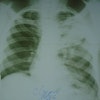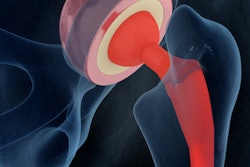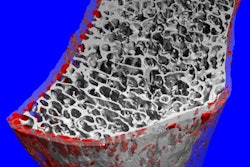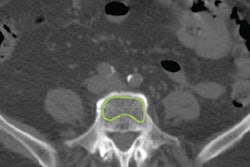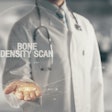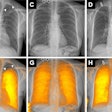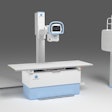Repeating bone mineral density tests after two years -- and even up to four years -- provides little clinical benefit when assessing bone fracture risk in seniors ages 75 and older, according to a September 25 study in the Journal of the American Medical Association.
Bone mineral density testing is an important tool in osteoporosis risk assessment and management, but there are no established guidelines for the appropriate time interval between tests, according to researchers from the Institute for Aging Research at Hebrew SeniorLife in Boston. Medicare pays for bone mineral density screening every two years without restricting the number of repeat tests and regardless of baseline test results, the researchers wrote.
Lead author Dr. Sarah Berry and colleagues included data from 310 men and 492 women whose bone mineral density was assessed twice between 1987 and 1999 as part of the Framingham Osteoporosis Study (JAMA, September 25, 2013, Vol. 310:12, pp. 1256-1262).
The team found that the initial bone mineral density test does a good job of identifying people at risk for fracture, and the current clinical practice of performing the test every two to four years may not be necessary in adults older than 75 who aren't being treated for osteoporosis.
Instead of repeating the test, providers should update the patient's clinical characteristics in the Fracture Risk Assessment Tool at the time of the next visit to reassess fracture risk, Berry's group concluded.
